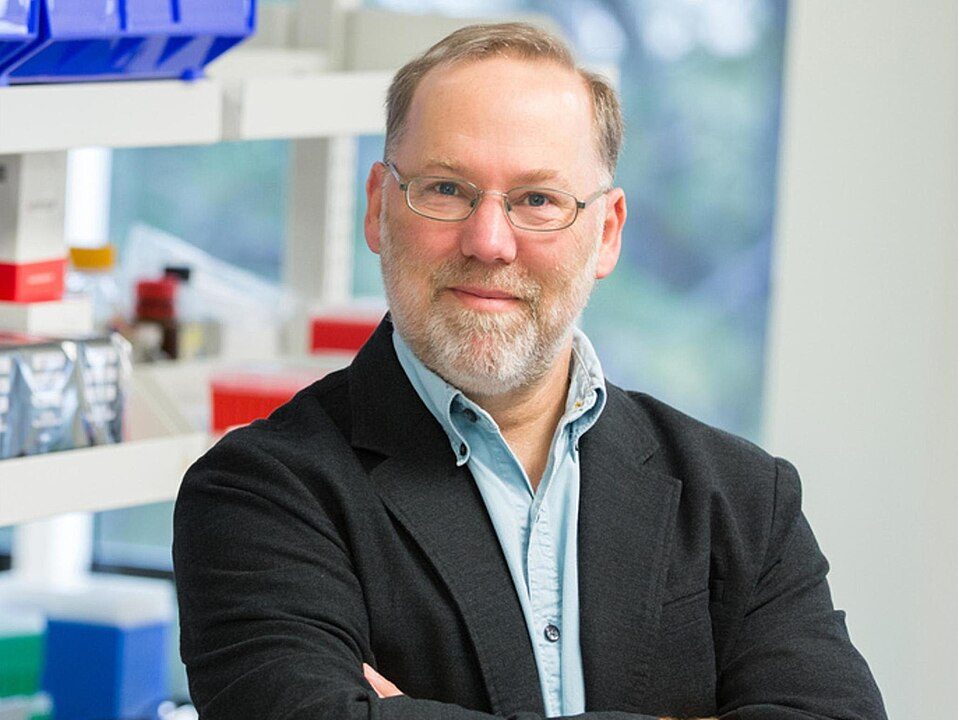Scientist Who Was ‘Offline and Having the Best Time of His Life’ Shocked by Nobel Prize Winning
Fred Ramsdell was vacationing in the Wyoming wilderness when he and two colleagues were awarded the Nobel Prize in Science in Honor of Their Discoveries in Immunology
Photo: Fred Ramsdell Wins 2025 Nobel Prize in Chemistry, Wikimedia Commons
When Fred Ramsdell was announced as the Nobel laureate earlier this week, he was deep in the mountains of Wyoming, completely offline and surrounded by fresh snow. The next day, as he wrapped up a three-week backpacking trip with his wife, her phone began to light up with hundreds of messages announcing the good news: Ramsdell, along with Mary E. Brancow and Shimon Sakaguchi, had won the 2025 Nobel Prize in Physiology or Medicine for their discoveries that reshaped immunology, Wired reports.
Ramsdell tells Wired that he was unaware that the Nobel Prizes were being announced, let alone that the Nobel committee was trying to contact him. Sonoma Biotherapeutics, the biotech firm he founded, told reporters that Ramsdell was “living his best life and was disconnected from the network of pre-planned hikes.”
When the news finally reached him, Ramsdell says he was shocked. He knew the work he and his colleagues were doing was a major breakthrough, but he had already won another Swedish prize for it, so he assumed the Nobel prize was out of the question.
Ramsdell and his fellow laureates discovered how the body’s immune system learns to spare its own tissues, a process called peripheral immune tolerance. Part of their work involved a special strain of scaly-skinned mice at Oak Ridge National Laboratory in Tennessee, descendants of a World War II-era radiation experiment.
These “stingy” mice were born with a fatal mutation that turned their immune systems against their own organs. In the 1990s, Ramsdell and Brankov, who were working at a Seattle biotech company, identified the gene responsible—a breakthrough that paved the way for today’s generation of cell therapies that target cancer and other diseases by retraining immune cells rather than destroying them. Wired spoke with Ramsdell on Tuesday, shortly after he was informed of his Nobel Prize.
Wired: Where were you when you got the news that you had won the Nobel Prize?
Fred Ramsdell: I was about 8,000 feet up in the mountains of Wyoming, just east of Yellowstone National Park. My wife and I had been out for three and a half weeks camping, backpacking, hiking, and stuff, and it was our last night, and we had six inches of fresh snow, so we managed to get out, which wasn’t as easy as I thought it would be. Then we drove through Yellowstone, and I didn’t even pay attention to my phone, because I’m on vacation. I didn’t even know it was Nobel Prize day, because I don’t think about it.
My wife’s phone went off when we were going through this little town and she got some kind of signal. She was like, “Oh, my God, my God.” I was outside and we were in grizzly bear territory, and I was like, “A bear? There’s no bear.” She came out and said, “He just won the Nobel Prize.”
“No, no, come on,” I said. She was like, “I have 200 text messages.” Obviously, I straightened up. We had already booked a hotel room for that night. So we signed up, I went online and tried to call the Nobel Committee. And of course, by then it was 1:00 in the morning, so everyone was asleep, so I didn’t talk to them until probably 1:30 in the morning. My wife Laura and I went out and sat in an Irish pub and, you know, had a cocktail or two, some food, and watched Monday night football.
